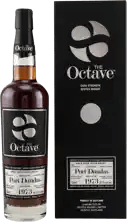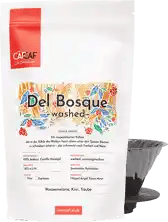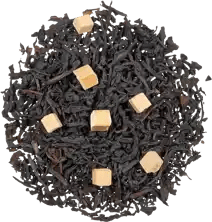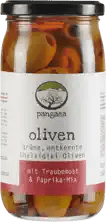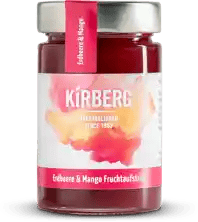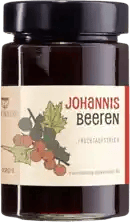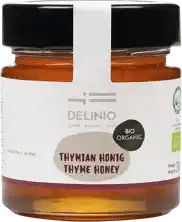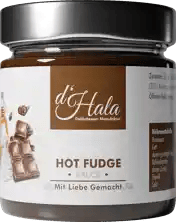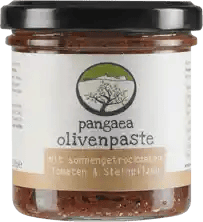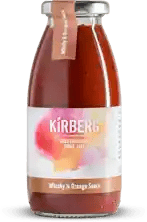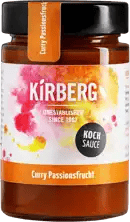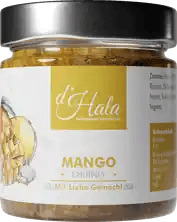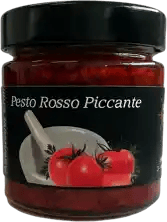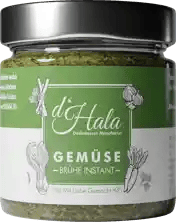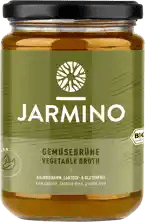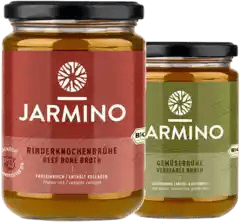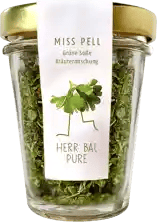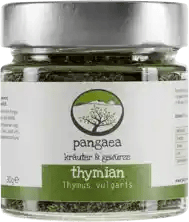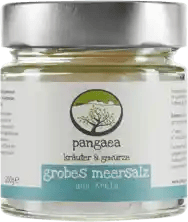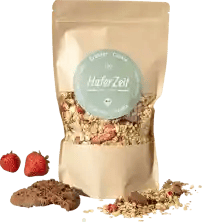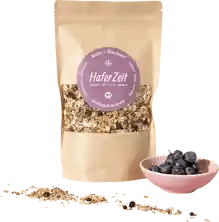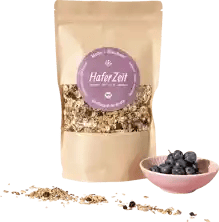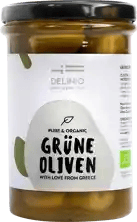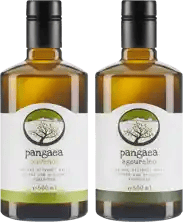Quality instead of quantity!
7,000 independent products
No mainstream
7,000 independent products
Buy oil for salad and cooking
When buying oil, you are often faced with the challenge of choosing the right oil for your needs from a wide range of options. In our range, you will find an extensive selection of high-quality and premium oils that will enrich any kitchen. Whether you are looking for the perfect oil for your salad dressings or need a reliable oil for cooking and frying, you will find it here. Our range includes classic oils such as olive and rapeseed oil as well as specialized variants such as walnut and argan oil.
This guide will provide you with valuable information on how to choose the best oil for your culinary needs. We shed light on the different properties and uses of different types of oil, give tips on how to store and dispose of oil correctly and explain how you can make your own spice oil. You will also learn interesting facts about the health aspects of oils and how they affect our bodies. With our guide, you'll be well equipped to buy the ideal oil for your kitchen and make the most of its potential.
What exactly is cooking oil?
Cooking oil, often referred to as the liquid gold of the kitchen, is extracted from a variety of oil plants. These plants, rich in beneficial fatty acids, offer us a wide range of oils - from olive to rapeseed to sunflower oil. Each oil has its own identity, which is characterized by the type of plant, the growing conditions and the production process. The taste, color and consistency of the oil can vary, making it a versatile and indispensable ingredient in any kitchen. High-quality edible oils are characterized by their distinctive taste, the type of fatty acids they contain, their health benefits and their many uses.
The quality of an edible oil is also determined by the type of extraction. Cold-pressed oils, where the seeds or fruit are mechanically pressed without the addition of heat, retain their natural flavors and nutrients. These oils are ideal for salad dressings or for refining dishes after cooking. On the other hand, refined oils are treated by heating and chemical processes to remove impurities and increase shelf life. These oils are more suitable for frying and cooking at high temperatures.
Choosing the right oil can have a significant impact on the flavor and nutritional composition of dishes. While some oils, such as olive oil, are known for their savory taste and health benefits, others, such as coconut oil or sesame oil, offer unique flavors that complement certain styles of cooking. In addition, cooking oils play an important role in the diet as they provide essential fatty acids that the body cannot produce on its own, helping to maintain overall health.
Salad oil: These oils are well suited
Choosing the perfect oil for your salad can be the be-all and end-all for a successful dish. From classic olive oils with their fruity character to nutty walnut and peanut varieties - there is an oil to suit every taste. Cold-pressed oils such as linseed or hemp oil are particularly suitable if you want to add a special touch to your salad. These oils are not only rich in flavor, but also beneficial to your health thanks to their unsaturated fatty acids.
In addition to these common oils, there are a number of more exotic options that can add a unique flavor dimension to your salads. Think avocado oil, with its creamy texture and mild flavor, or sesame oil, which adds an Asian twist. Grapeseed oil, with its light and fresh character, is another excellent choice for salad dressings. Lesser-known but intensely flavored oils such as pumpkin seed or hazelnut oil can also take your salad creations to a new level.
It's important to understand the flavor profiles and characteristics of different oils to make the right choice for your salad. Some oils, like extra virgin olive oil, are great for Mediterranean salads, while others, like walnut oil, go particularly well with salads with autumnal ingredients like arugula and baked squash. Experiment with different oils to find out which combinations taste best to you and give your dishes that certain something.
Oil for cooking and frying: What you need to bear in mind
When cooking and frying, it is important to choose the right oil. Not every oil is heat-resistant. For example, olive oil and rapeseed oil are versatile, both for cold dishes and for frying at medium temperatures. Other oils, such as linseed or walnut oil, are sensitive to heat and are better suited to cold dishes. Always pay attention to the oil's smoke point - above this temperature the oil starts to smoke and healthy ingredients can be lost.
Is there a difference between salad oil and seasoning oil?
Yes, there is a significant difference between salad oil and seasoning oil. Salad oils are usually lighter and have a more subtle flavor so as not to mask the inherent flavor of the salad ingredients. Typical salad oils are olive oil or sunflower oil, for example. Seasoning oils, on the other hand, are often flavored or enriched with herbs and have a stronger flavor that makes them ideal for refining dishes. Seasoning oils such as chili oil or garlic oil are perfect for adding a special spice to dishes. A special form of seasoning oil is herb oil. These are specially made with herbs.
How is oil produced/obtained?
The production of edible oil is a complex and multi-layered process that is divided into various methods. Two of the main methods are cold pressing and refining. In cold pressing, the oilseeds, such as olives, rapeseed or sunflower seeds, are pressed mechanically without heat being added. This process preserves the natural aromas, colors and nutrients of the oil and results in a high-quality and tasty end product. Cold-pressed oils are particularly popular in gourmet cuisine and with health-conscious consumers, as they are rich in essential fatty acids and vitamins.
Refining, on the other hand, is a process that involves heating and chemically treating the oils. In this process, impurities, free fatty acids and other undesirable elements are removed. The result is a clearer, longer-lasting and more heat-resistant oil. Refined oils have a more neutral taste and smell and are therefore ideal for cooking and frying at high temperatures, as they burn less quickly than cold-pressed oils.
In addition to these two main methods, there are also specialized techniques such as solvent extraction, which is mainly used in industrial oil production. In this method, oilseeds are treated with a solvent to extract the oil. This process allows for a higher yield, but some of the natural properties of the oil may be lost. Regardless of the method, the quality of the raw materials is a decisive factor in the quality of the end product. The best oils are obtained from carefully selected, high-quality seeds that have been grown and harvested under optimal conditions.
Cold pressing
In cold pressing, the oilseeds or fruits are pressed mechanically without the addition of heat. This process is gentle and preserves the natural aromas, vitamins and secondary plant substances in the oil. Cold-pressed oils such as olive oil, linseed oil or walnut oil are rich in flavor and ideal for cold dishes, as they can lose their valuable ingredients at high temperatures.
Refining
Refined oils are produced through a process in which the oils are first heated and then chemically treated. This removes impurities and stabilizes the oil, making it more heat resistant. Refined oils such as sunflower or soybean oil have a neutral taste and are ideal for cooking and frying at high temperatures.
Making your own seasoning oil
Making your own spice oil is not only easy, but also a creative way to give your dishes an individual and aromatic touch. Start with a neutral base oil such as rapeseed or sunflower oil, which will not mask the flavor of the spices. Then choose your favorite herbs and spices. Classic options are rosemary, thyme, basil, oregano or chili. You can also experiment and add garlic, lemon zest, bay leaves or even more exotic spices such as star anise and cardamom.
To make the spice oil, add the fresh or dried herbs and spices to the oil. The amount depends on how intense you want the flavor to be. Leave the oil to infuse in a cool, dark place for at least a week so that the aromas can fully develop. For a more intense aroma, you can also heat the mixture slightly before letting it infuse. Make sure to shake the oil regularly to distribute the flavors evenly.
After the oil has had sufficient time to absorb the flavors, sieve out the solid components. Store the finished spice oil in a clean, airtight bottle. Spice oils are ideal for refining salads, marinating meat, fish or vegetables, or as an aromatic addition to ready-made dishes such as soups, stews and pasta. They also make an excellent gift for friends and family who love to cook. With homemade spice oil, you can transform simple dishes into something special and take your cooking skills to a new level.
Store oil correctly
Storing oil correctly is crucial to preserving its quality and freshness. Ideally, it should be kept in a dark, cool place, away from direct sunlight and heat sources. This helps to preserve the oil's flavor and nutrients. Once opened, it is advisable to keep the oil tightly sealed to minimize contact with oxygen, which can cause the oil to go rancid.
Dispose of oil correctly
Used oil should be disposed of responsibly. Never pour it down the drain as it can clog pipes and cause environmental problems. Instead, the oil should be collected in a sealable container and disposed of with household waste. Larger quantities of cooking oil can often be disposed of at recycling centers.
Effect and function of oil for our body
Oils play an important role in our diet. They provide energy, support the absorption of fat-soluble vitamins and contribute to the health of our skin and hair. The right choice and amount of oil in the diet can have positive effects on our body, especially by providing essential fatty acids.
What are fats?
Fats are essential macronutrients that play a central role in our diet. Not only are they a rich source of energy, but they are also essential for the construction of cell membranes and the absorption of fat-soluble vitamins such as A, D, E and K. Fats are made up of molecules known as fatty acids and can be divided into two main categories: saturated and unsaturated fatty acids.
Saturated fatty acids have no double bonds between the carbon atoms of their molecular structure. They are commonly found in animal products such as butter, cheese and red meat, as well as in some vegetable fats such as coconut and palm oil. Saturated fats are usually solid at room temperature and can raise blood cholesterol levels, which can increase the risk of heart disease.
Unsaturated fatty acids, on the other hand, contain one or more double bonds in their structure. They are further subdivided into monounsaturated fatty acids (with one double bond, as in olive and rapeseed oil) and polyunsaturated fatty acids (with several double bonds, as in fish oil, linseed oil and walnut oil). These unsaturated fats are liquid at room temperature and are considered heart healthy as they can help lower total cholesterol levels and promote heart health.
The balance between saturated and unsaturated fats in the diet is crucial. A diet rich in unsaturated fats not only supports heart health, but also contributes to better overall health by reducing inflammation and supporting cell function. Therefore, it is recommended to replace saturated fats with unsaturated fats to promote a balanced and healthy diet.
Which fats and oils are healthy for us?
Unsaturated fatty acids, which are found in many vegetable oils such as olive oil, rapeseed oil and linseed oil, are particularly healthy. They can lower blood cholesterol levels and reduce the risk of cardiovascular disease. Regular consumption of these oils in moderate amounts is an important part of a balanced diet.
Which fats are unhealthy?
Saturated fatty acids, which are mainly found in animal products such as butter, fat and some vegetable oils such as palm oil, should be consumed in moderation. They can lead to an increase in bad cholesterol and increase the risk of heart disease. A balanced diet should contain a higher proportion of unsaturated fatty acids.
What is important when buying oil?
When buying oil, you should pay attention to quality and origin. Opt for oils that are cold-pressed and free from additives to preserve the natural flavors and nutrients. Also check the labels and choose products from sustainable cultivation to benefit both your health and the environment.
Popular oils for eating and cooking
There are a variety of oils that are suitable for different purposes in the kitchen. Some of the most popular are olive oil, rapeseed oil and coconut oil, which are valued for their flavor and versatility. However, specialized oils such as sesame, hemp or walnut oil are also gaining popularity for adding a unique touch to dishes.
Rapeseed oil
Rapeseed oil is a versatile oil that is suitable for salads as well as for cooking and frying. It has a mild flavor and is rich in unsaturated fatty acids, making it a healthy choice.
Coconut oil
Coconut oil is known for its unique, exotic flavor and solid consistency at room temperature. It is ideal for Asian dishes and baking, but contains predominantly saturated fatty acids.
Linseed oil
Linseed oil is particularly rich in omega-3 fatty acids and is ideal for cold dishes such as salads. It should not be heated in order to preserve its healthy properties.
Nut oil
Nut oils, such as walnut and almond oil, are known for their rich, nutty flavor. They are perfect for salad dressings and desserts, but should not be heated due to their high content of unsaturated fatty acids.
Olive oil
Olive oil is a classic in Mediterranean cuisine and can be used in many different ways. It is ideal for salads, steaming and mild frying. Olive oil is rich in monounsaturated fatty acids and promotes a healthy diet.
Sesame oil
Sesame oil, particularly popular in Asian cuisine, adds an exotic touch to dishes. It is suitable for cold dishes as well as for frying at medium temperatures.
Sunflower oil
Sunflower oil is an all-rounder in the kitchen. It has a neutral taste and is ideal for everything from salad dressings to frying. It is rich in vitamin E and unsaturated fatty acids, making it a healthy choice.
Hemp oil
Hemp oil is prized for its nutty flavor and high omega-3 and omega-6 fatty acid content. It is ideal for cold dishes such as salads and dips, but should not be heated to preserve its valuable ingredients.
Argan oil
Argan oil, often referred to as the "liquid gold of Morocco", is known for its rich, nutty flavor. It is mainly used in cold dishes to give them a special touch.
Mustard oil
Mustard oil, with its pungent and spicy aroma, is a popular choice in many Asian cuisines. It is suitable for both cold and hot dishes and gives them a spicy note.
Brilliant!

Bitte bestätige deine Anmeldung noch eben - du hast eine Bestätigungsmail von uns. Klicke darin auf den Link. Danach bekommst du deinen Rabattgutschein.






















